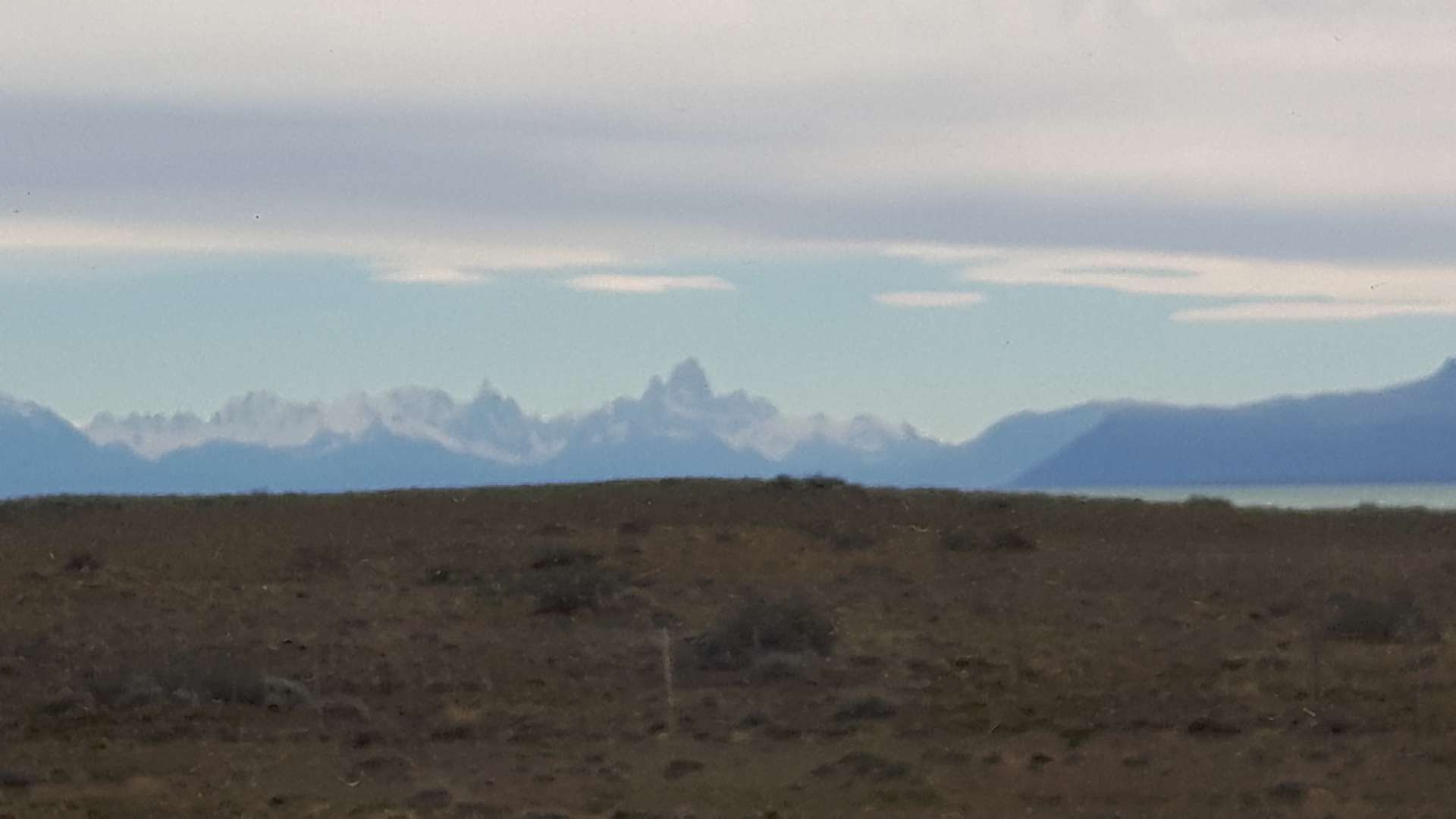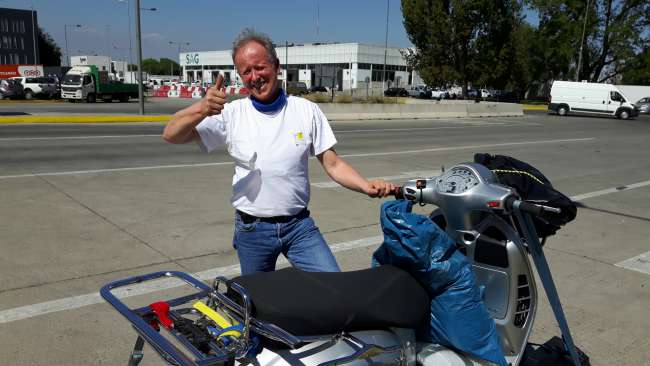ab 29.11.: Vilhena / Rondonia
Cyhoeddwyd: 30.11.2018
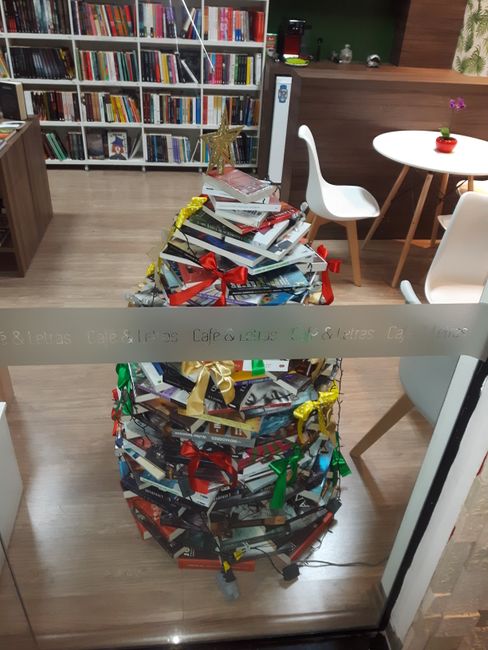
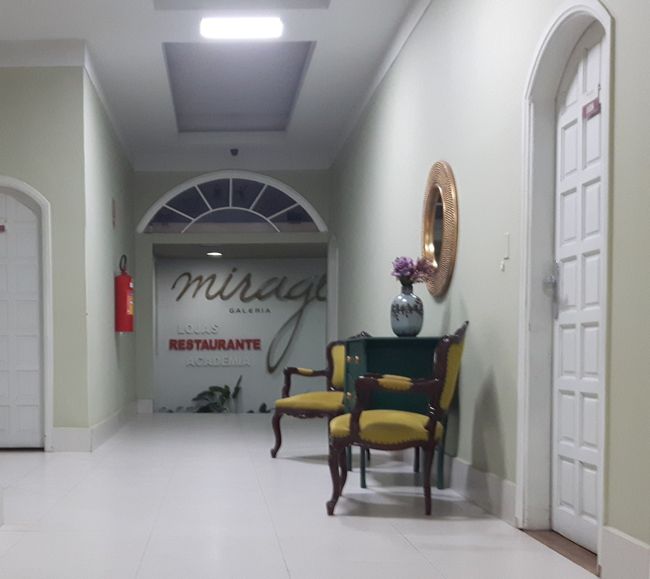
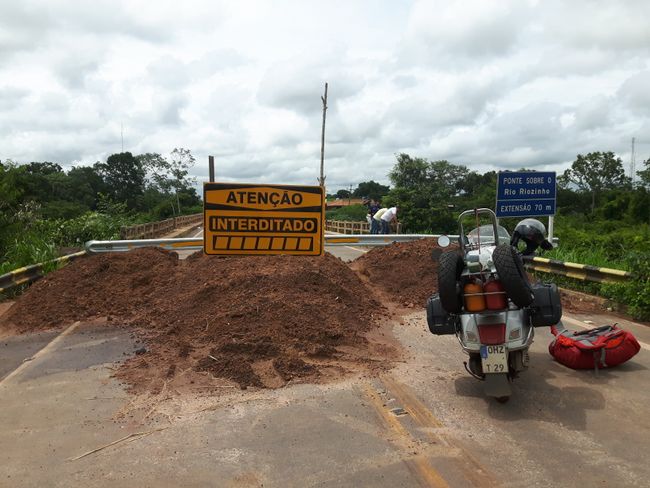
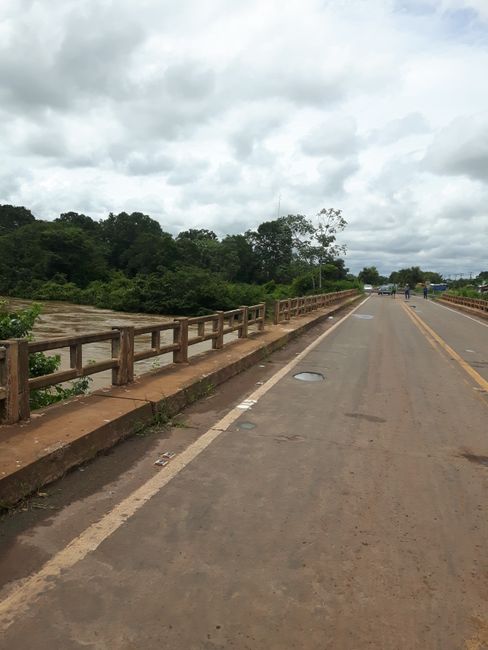
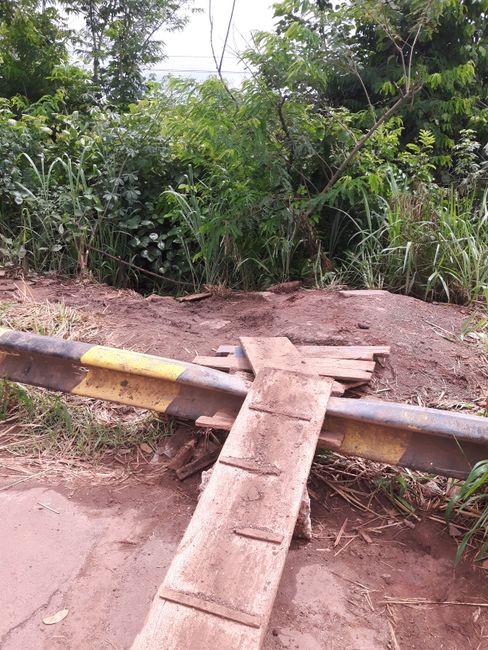
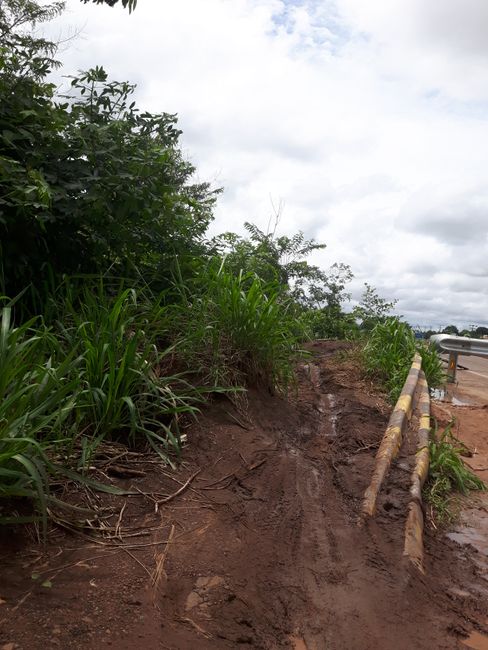
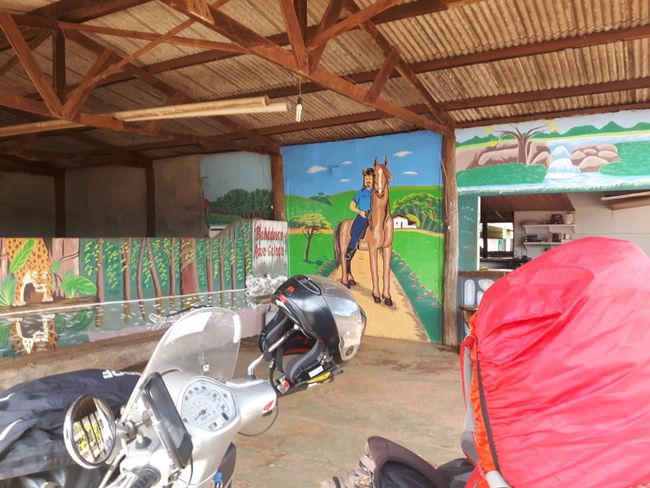
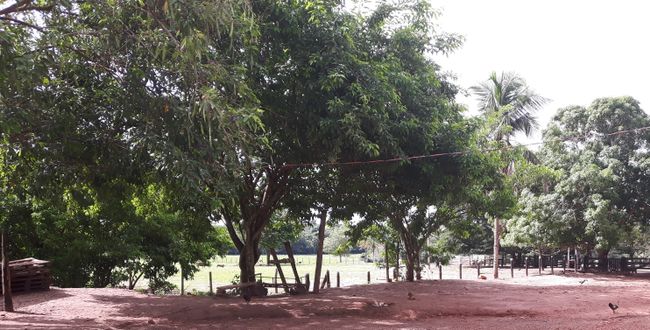
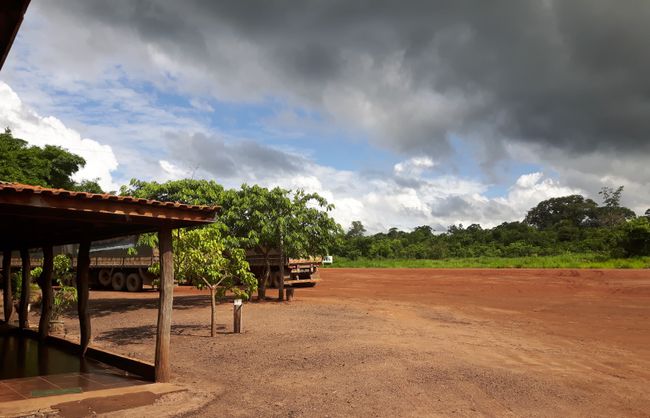
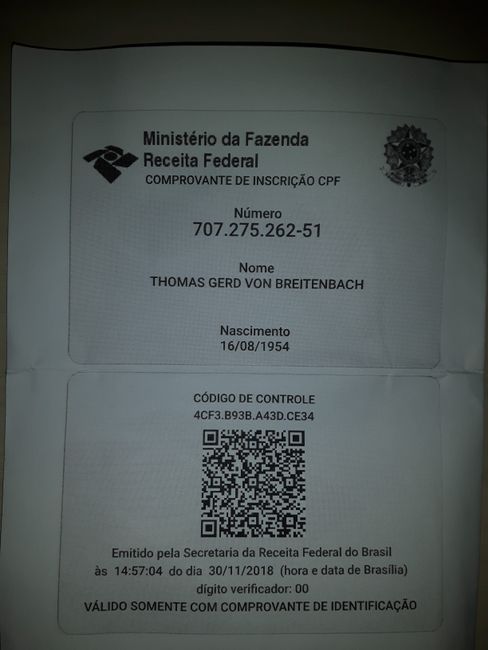
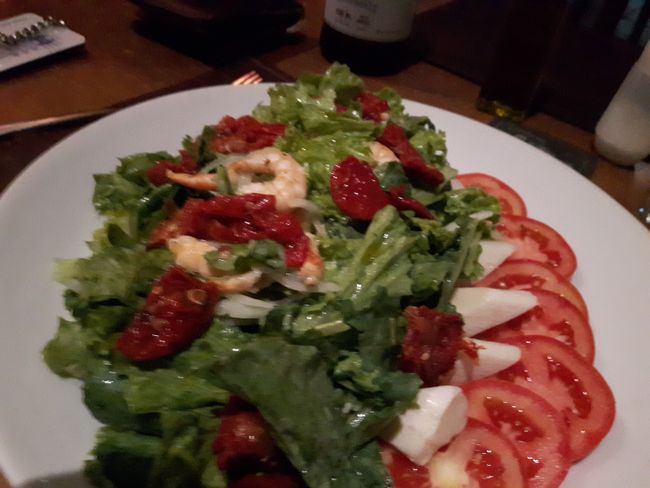
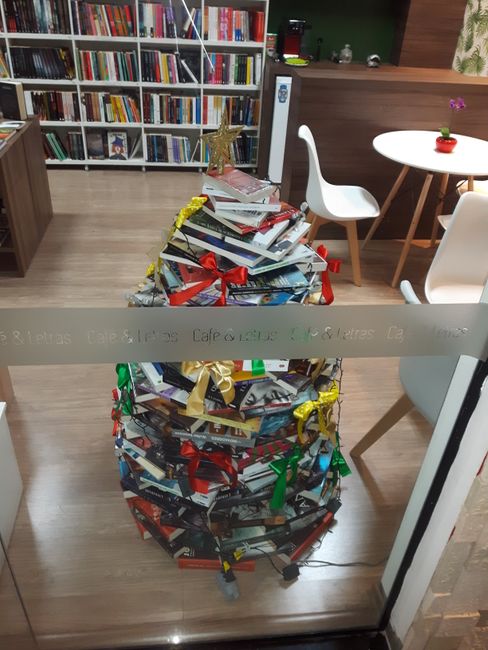
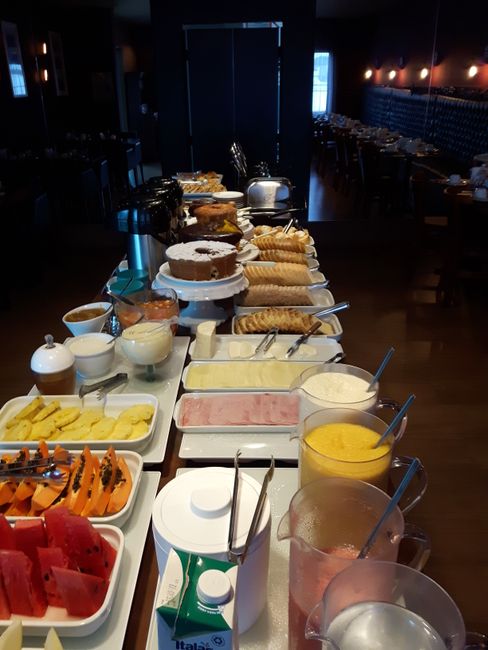
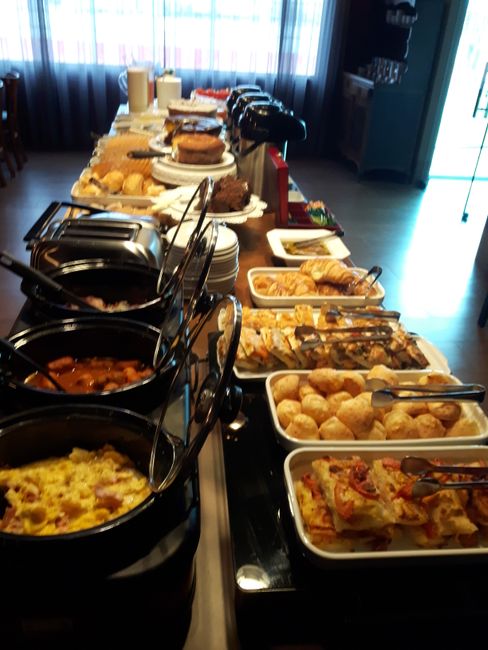
Tanysgrifio i'r Cylchlythyr
29.11.:
good sleep, toast and cafe con leche for breakfast and a chat with the lady of the house.she thinks Bolsanero is good. I'm surprised because I had a different impression of her. She says the pain threshold has been reached and Brazil needs to move forward now.
And what about the Africans? I ask, thinking about my visit to a bar a few houses away where a Brazilian of African descent got along well with the other Brazilians. Will it stay that way?
I don't get an answer to my question about the Africans. She talks about Venezuelan immigrants who are looking for work and getting it in Brazil. I still can't figure her out.
I leave the conversation with some question marks. Later, she comes to the garage and wants to take a photo of the two of us with the Vespa.
It's raining cats and dogs. But I'm making good progress and wonder where all the trucks are.
The rain subsides and soon the BR 364 is dry. It's smooth driving. The Vespa purrs. This morning I read that Ji Parana used to live off rubber. That worked well until the 1950s, and then there was a rush for diamonds. The population has multiplied as a result. It wasn't founded until 1914.
Just after Cacoal, I find a hidden restaurant. The toast didn't last. I prepare myself for a fried empanada, but then I notice a stove with some large pots on it. It's heated with wood. It's lunchtime. Each guest can help themselves. Then they take their full plate to the counter and pay by weight. There's not only meat, rice, and potatoes, but also zucchini. I skip the meat, but the rest is delicious and plentiful.
Then I continue. But not for long.
I notice that there are hardly any trucks and cars on the road, and shortly after I know why:
First, I see yellow signs, then a big pile of red dirt in the middle of the road, and right after that, a brand new guardrail shining in the sun, rammed into the middle of the road. There's no visible gap for motorcyclists. I didn't notice any diversion signs.
I drive a few hundred meters back to a bus driver and ask him. He points to the construction site and indicates that I have to go through there. Otherwise, I'd have to take a long detour.
There's no way through there!
But I drive back anyway. By now, there are two motorcyclists there who already know the trick of going around.
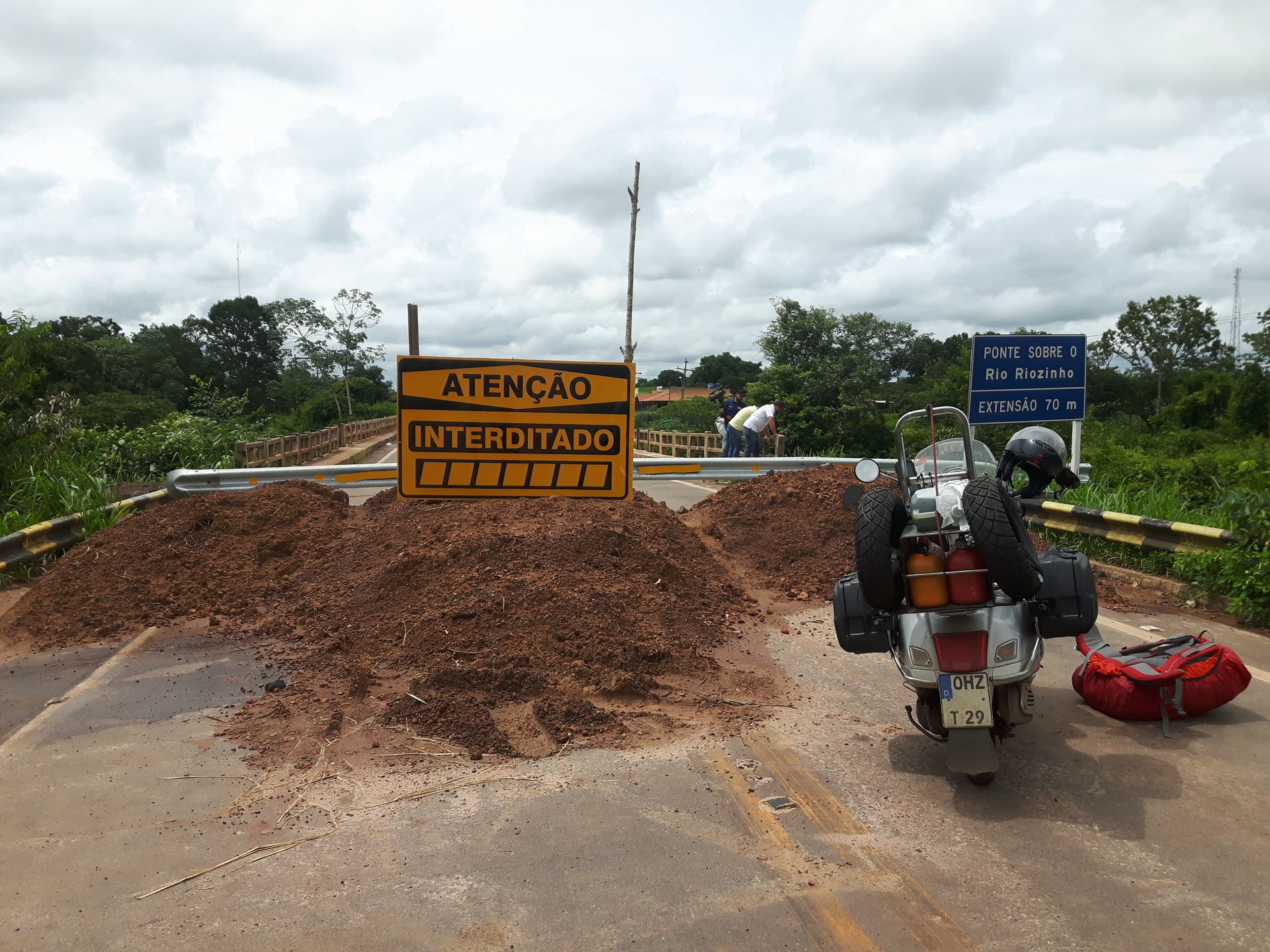
apparently no way through
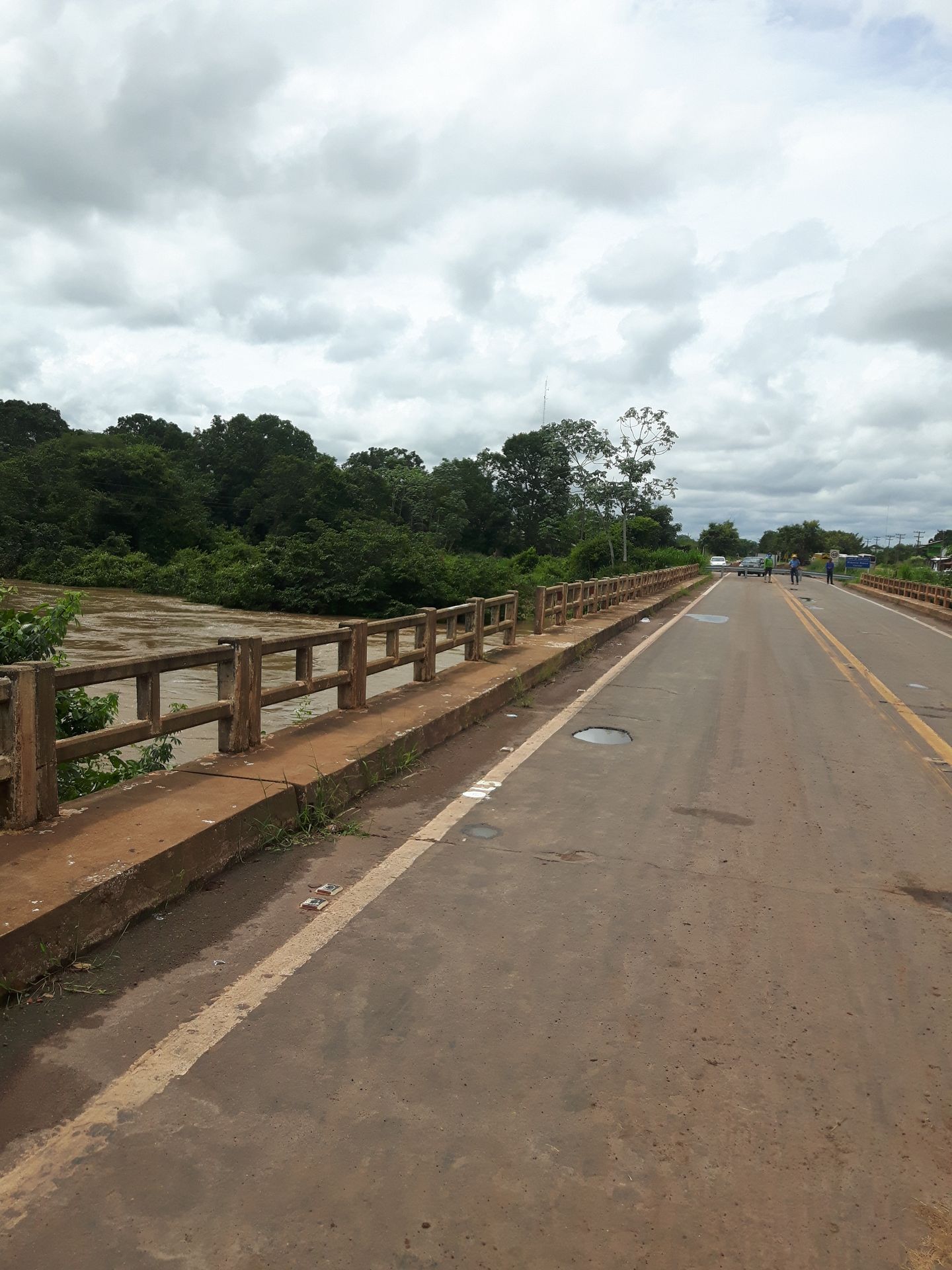
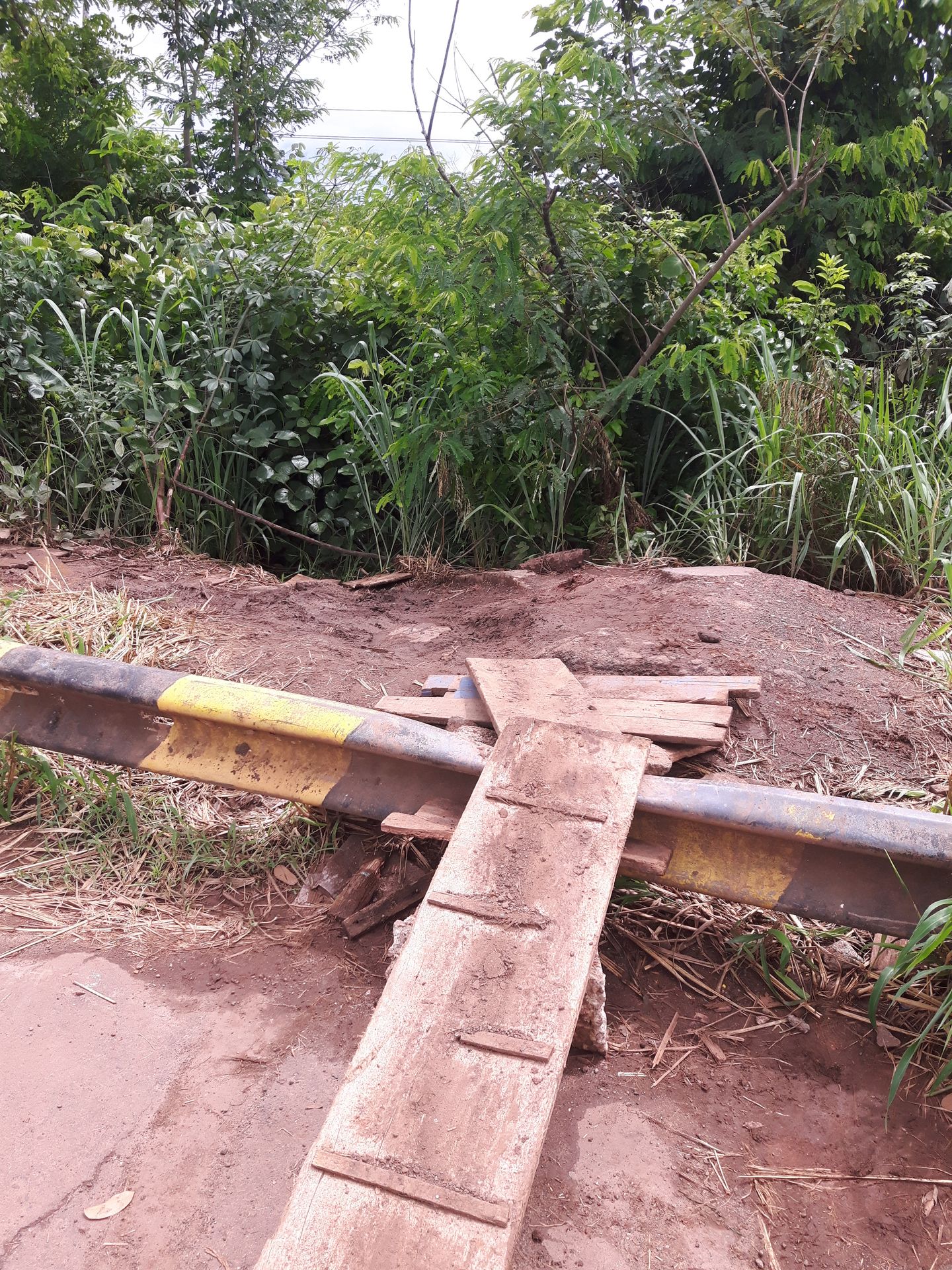

The two motorcyclists offer to help me. I free the Vespa from its luggage and side cases, and the adventure begins. Compared to motorcycles, it has very little ground clearance. We had to push it up the not very trustworthy board with the power of the engine. One of us had to lift it by the luggage rack, otherwise it would have touched the ground. The 90-degree curve was almost impossible to navigate on its own. Maybe I could have exchanged my sneakers for hiking shoes with a good tread. But it's too late now. The three of us manage the right angle. Then we pass the barrier while driving, to get back on the pavement. The same game repeats itself on the other side of the bridge.
The luggage remains unattended because all six hands are needed. The sun comes out. I can take off my helmet.
But we made it!
If I had used navigation, it would have taken me straight to the detour. So I have to use navigation even for the Transoceanica.
I thank all the angels and good spirits and now enjoy the empty road.
But the joy only lasts an hour. I'm heading towards a traffic jam, the length of which I can't estimate at first glance. On closer inspection, I realize that it stretches along the straight road as far as the eye can see.
If I wait here, I'll burn. The shoulder is drivable for me, and I follow it at a speed of 20 to 40 km/h. But then it's blocked. The only option is to continue on the opposite lane. The truck drivers have set up camp. One cooks his lunch, many others have a foldable chair in their cabin for such purposes, and they get comfortable now. Some have brought their wives and children along.
The engines are turned off. It won't be quick here. I expect frowns or even roadblocks. Most of them are happy about the Vespa and look at it with interest. Eventually - but just before the accident site - oncoming traffic starts moving again. The shoulder is in a devastating condition. All that's left is to wait. But soon the first engines are started, and now everyone else is slowly moving again too. The reason for this delay? A mega truck came onto the slightly lower shoulder with its rear wheels. The heavily loaded trailer tipped over and took the driver's cabin with it. It is a livestock transporter...
The men have to lend a hand. No fire brigade is equipped with the necessary tools. They go to work with iron bars, obeying the laws of physics. It will take days!
For me, the road is clear, and the surface is perfect.
I make one more stop at a gas station and finally take some photos.
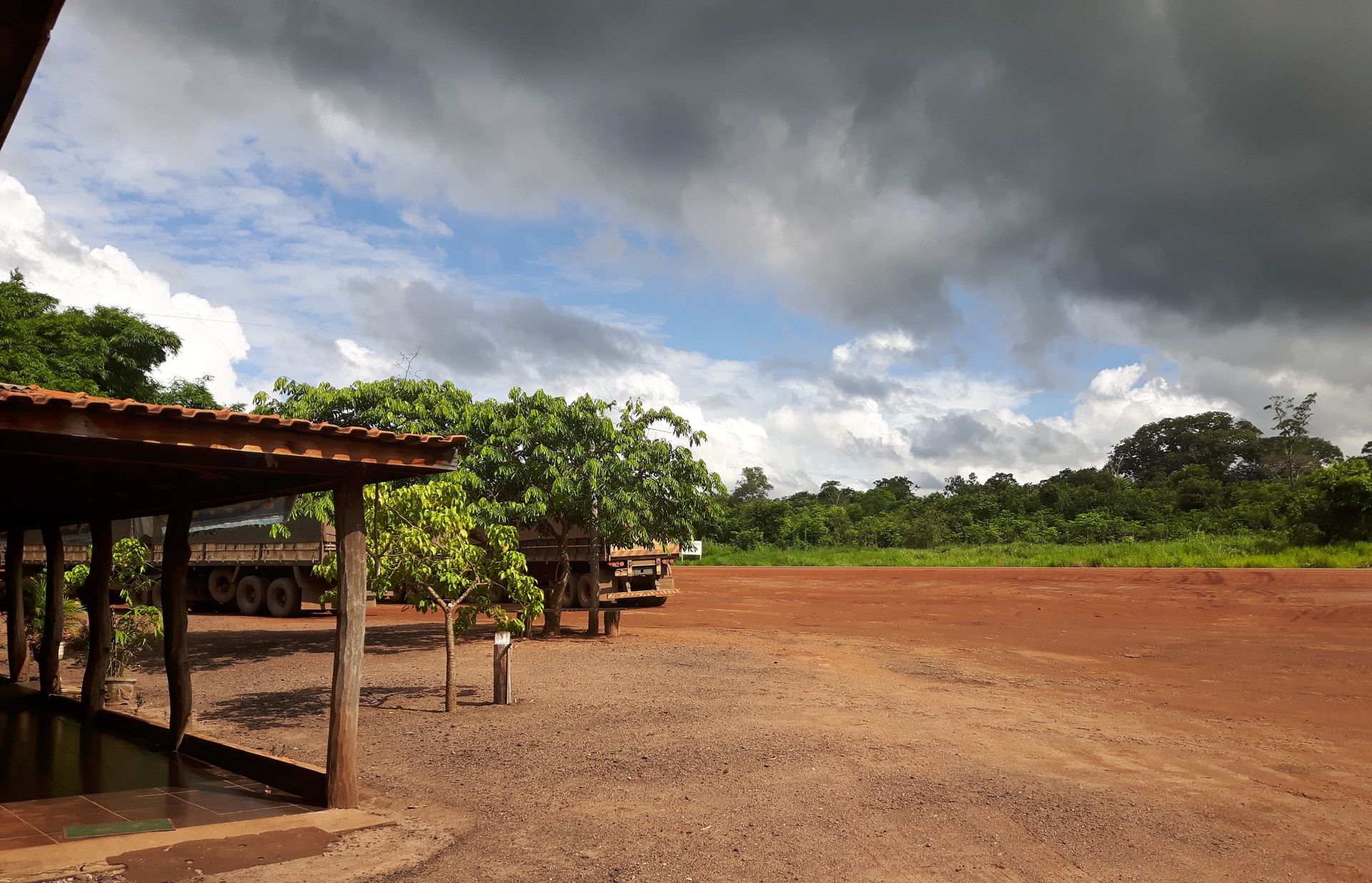

no sign of the Amazon feeling

break - protected from the sun
I see a rainbow in front of me, while it looks like the end of the world next to me and behind me. The sky is deep black. The clouds pour down rain. It's bright in front of me, white clouds and sun rays shining over the now wide land. The weather drives me forward. Luckily, I'm faster and reach the city without getting wet.
The fifth largest city in the state of Rondonia, 100 km from the Bolivian border, with about 75,000 inhabitants. It has a university and an airport.
The hotel is located in the city center. It's another business hotel. I'm not discouraged and curious about the price. The receptionist says it's 300 reais! If she hadn't mentioned the amount so hesitantly -
But I act surprised and almost horrified. Could the price still be negotiated? She calls her boss, who is the hotel owner. When he sees me in my gear, a smile comes across his face. And he immediately tells me about his trip to Bolivia on his motorcycle.
He is fascinated by the Vespa, and it's the Vespa that reduces the room price by two-thirds. 100 reais!!
So I agree to stay for two nights right away.
What a tour!

the Vespa decided the price
30.11.:
The bureaucracy has me in its grip again. This time, it's Brazilian bureaucracy.
The breakfast offered here is very abundant. A nice breakfast room, soft music in the background, fresh juices, fresh fruit, several types of cakes, jam, and even salted butter and various types of bread.
I'm not hungry. Yesterday, I had a large plate of shrimp salad and a whole au gratin dish of cheese-covered penne, meat, mashed potatoes, and tomatoes. Very delicious.
So I stick to crispy baguettes with jam and lots of fruit.

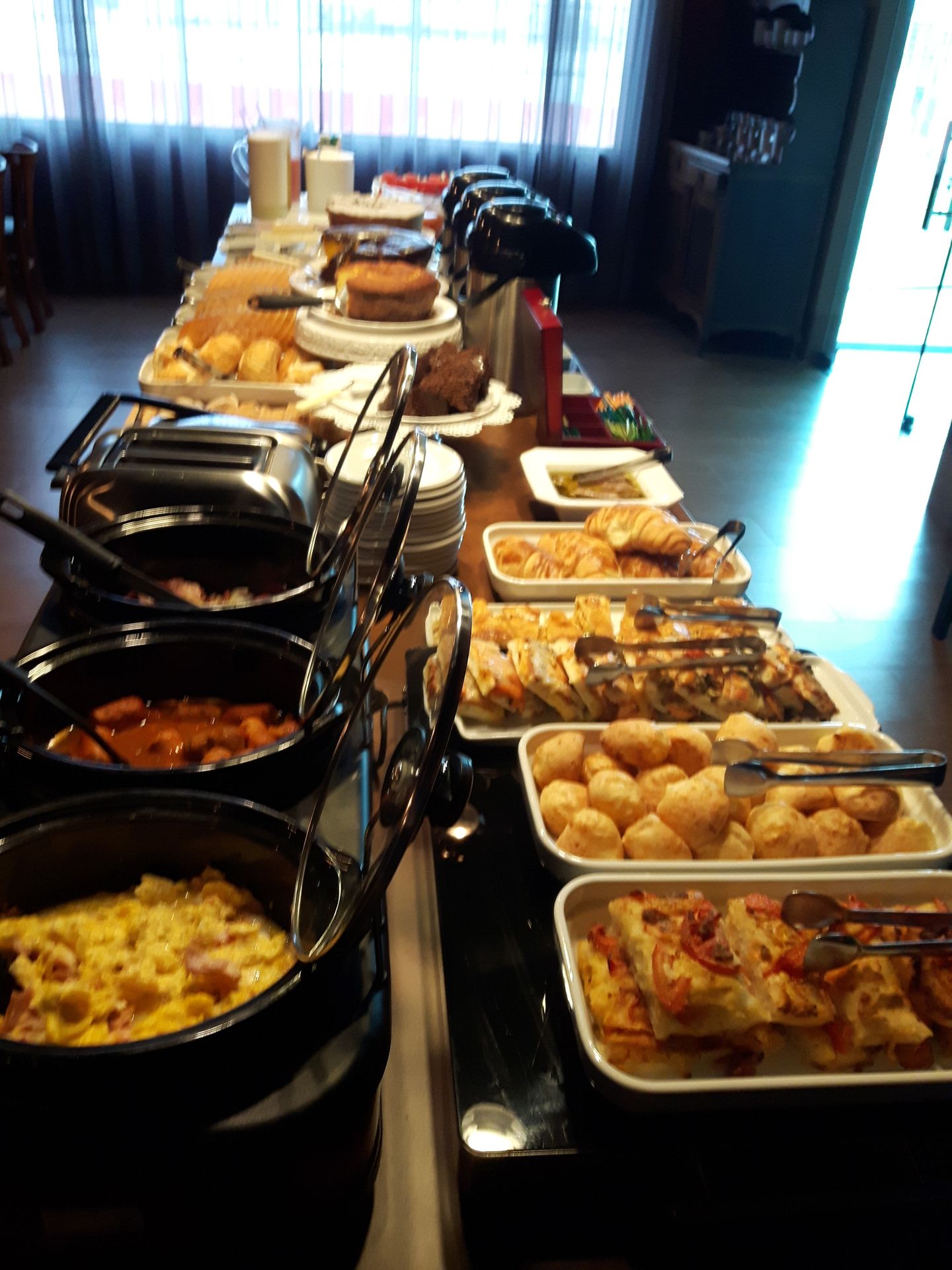
Today is supposed to be an organizational day: bank, CPF, SIM card, laundry, and a canister.
The canister disappeared yesterday after my last refueling. I suspect I forgot to secure it...
You can get the CPF across the street here. No problem. It's fast! says the owner to me. He should know, and I stroll into the store with my laundry bag. Premium furnishings, no loud music, several consultation tables with laptops ready to go. Only on the second glance do I see that it's a chip card and cellphone store.
I am served nicely, but I quickly find out that we won't make progress here. They ask me for the CPF number.
Communication is getting more difficult the deeper I travel into the country. Spanish is only used in very rare cases.
I usually only understand very small fragments, so I rely on Google Translate.
The same goes for the cellphone store. Even though we are sitting face to face, we are communicating through the app.
I am told to go to the post office. That's where I would get the CPF.
The way to the post office is long and not easy to find. Eventually, I enter a store that sells high-end home furnishings. Two people are engrossed in conversation.
I am looked at expectantly. I ask about the post office.
Post office? They don't understand. Google Translate translates it as post office. They don't know what to do with the Spanish word. The 'r' is pronounced like an 'h' in Portuguese...
One of the two takes me there on his motorcycle. Unbelievable!!! This spontaneity and helpfulness!
The first hurdle is taken!
I'm there, and I will be helped right away. The postwoman seems a bit frozen at first, but warms up quickly. She's apparently taking an English course and now tries to put her knowledge to good use. Her colleague is better at it and occasionally helps out. At the expense of his patient customer, who has a lot of patience.
We still need your mother's name, my senhora says, looking at me challengingly. I ask three times. My mother? The postal worker continues to warm up and wants to know where I'm from and where I'm going. I show her pictures of the Vespa. The colleague from the counter next door listens to her saying 'ooh' and 'aah' and briefly lets his patient customer wait to take a look at the Vespa.
It's Friday afternoon atmosphere.
Finally, everything is entered into the computer - it must have been half an hour - and then she tells me that there is still one hurdle to overcome. The Prefeitura, which can only issue the document. It will be occupied again from Monday on.
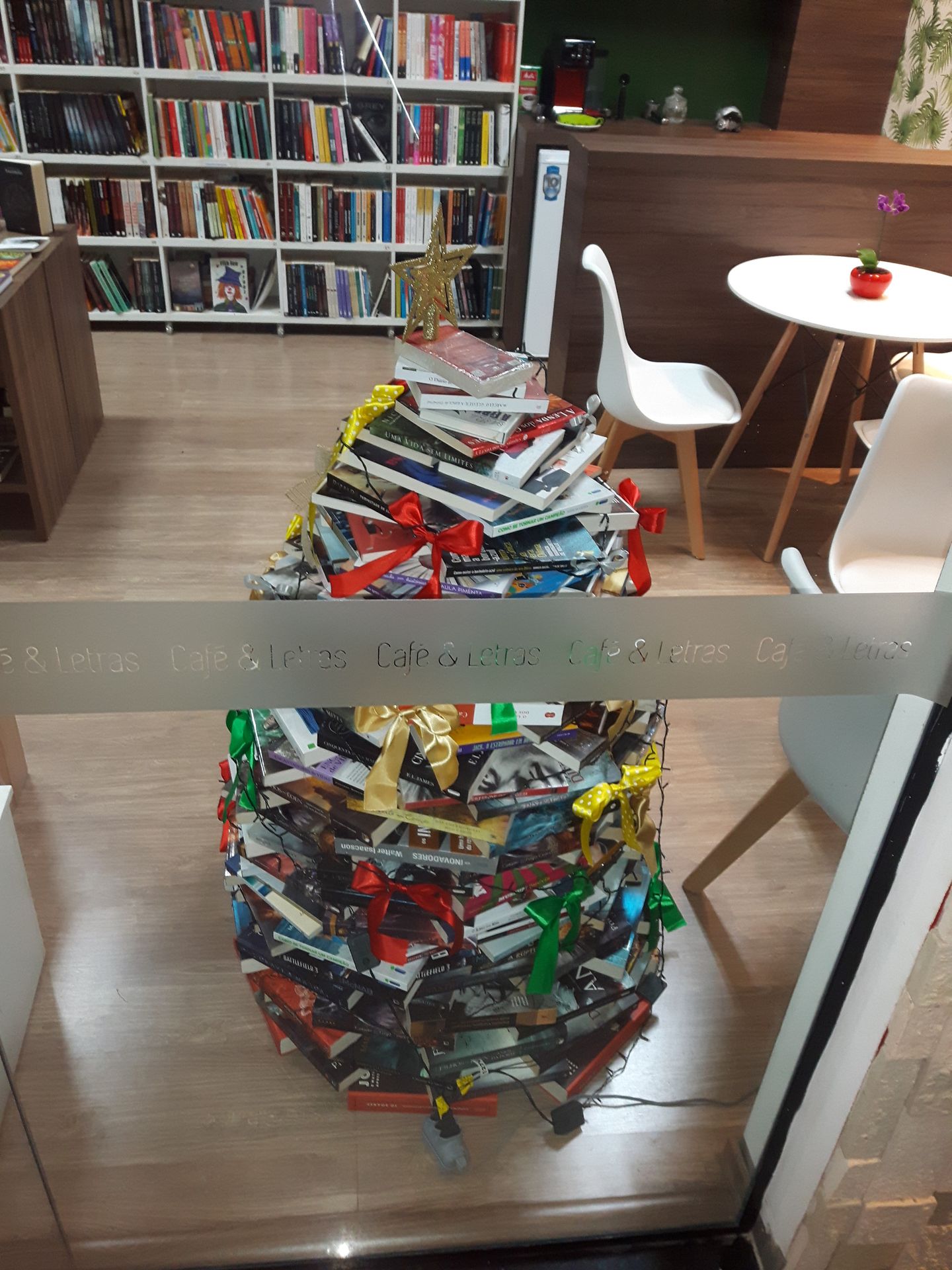
a bookstore has come up with something special for Christmas
No! I don't want to spend a weekend here. In a city where a pickup drives up and down the streets every 15 minutes, blaring loud music and shouting advertising messages into the microphone. All I can say to that is: constant penetration!!! I have to keep going. To a small and quiet Amazon village.
The colleague is also taking in my 'oohs' and 'aahs'. He knows someone there and wants to call him. With success!!! I would be let in for once. The way there is actually easy, but I still make a mistake and once again rely on help.
A pickup is coming from the other direction. He has to drive slowly because of a speed bump. I seize the opportunity and knock on his window. In Brazil, all windows are darkened due to the heat and brightness. Even the windscreen, which makes communication more difficult. I don't know who's behind the wheel here. The window opens silently. I ask about the Prefeitura. He starts explaining at length. Time is running out for me.
Would he pass by there...? And now I'm already in the car! His wife is sitting on the back seat, whom I couldn't see before.
He also deserves a big thank you, and I'm there.
My arrival has already been observed, and the door is unlocked in anticipation.
My nerves are stretched to the breaking point. With every hesitation, every question, every frown, etc., I expect to be asked for this or that document and to be told that I can get it here and there. But everything goes smoothly, and I have the CPF in my hands after fifteen minutes.
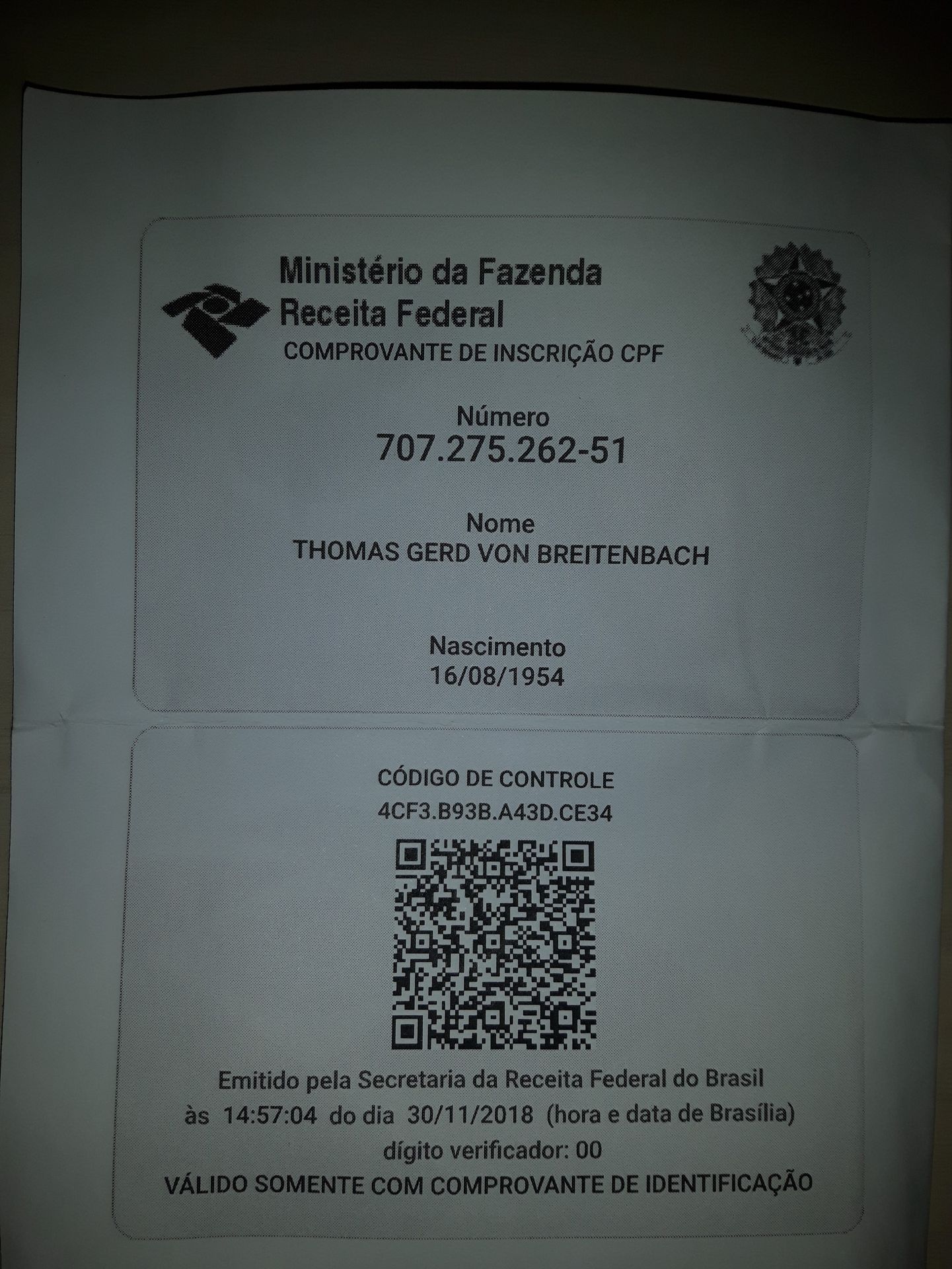
open sesame
My laundry bag accompanies me the whole time...
The next stop is the Claro provider. In Peru, everything is done in passing. Here, we sit in front of the computer for half an hour. And here too, Google Translate has to help out.
The visit to the bank is comparatively quick. The customers are lined up at the ATMs in the bank. I ask if they accept Visa and get immediate help and even assistance. It works on the second try. This is not good for my nerves. Second try!!! But then the machine whirs, and I can leave the Visa card in when paying small amounts.
All that's left is the laundry. That's done quickly. It will be delivered to the hotel tomorrow at 10 o'clock.
And the spare canister. I have the right word for it. It didn't work on the first try today. But for sure on the second try.
It was a gray rainy day. Yesterday, the hostel owner told me on arrival that it will rain here until April. He is the one with the 6 motorcycles in the garage. One of them is a Harley-Davidson, which is now parked in front of his covered hotel entrance.
Now just a salad, a movie, and then gather strength for tomorrow.
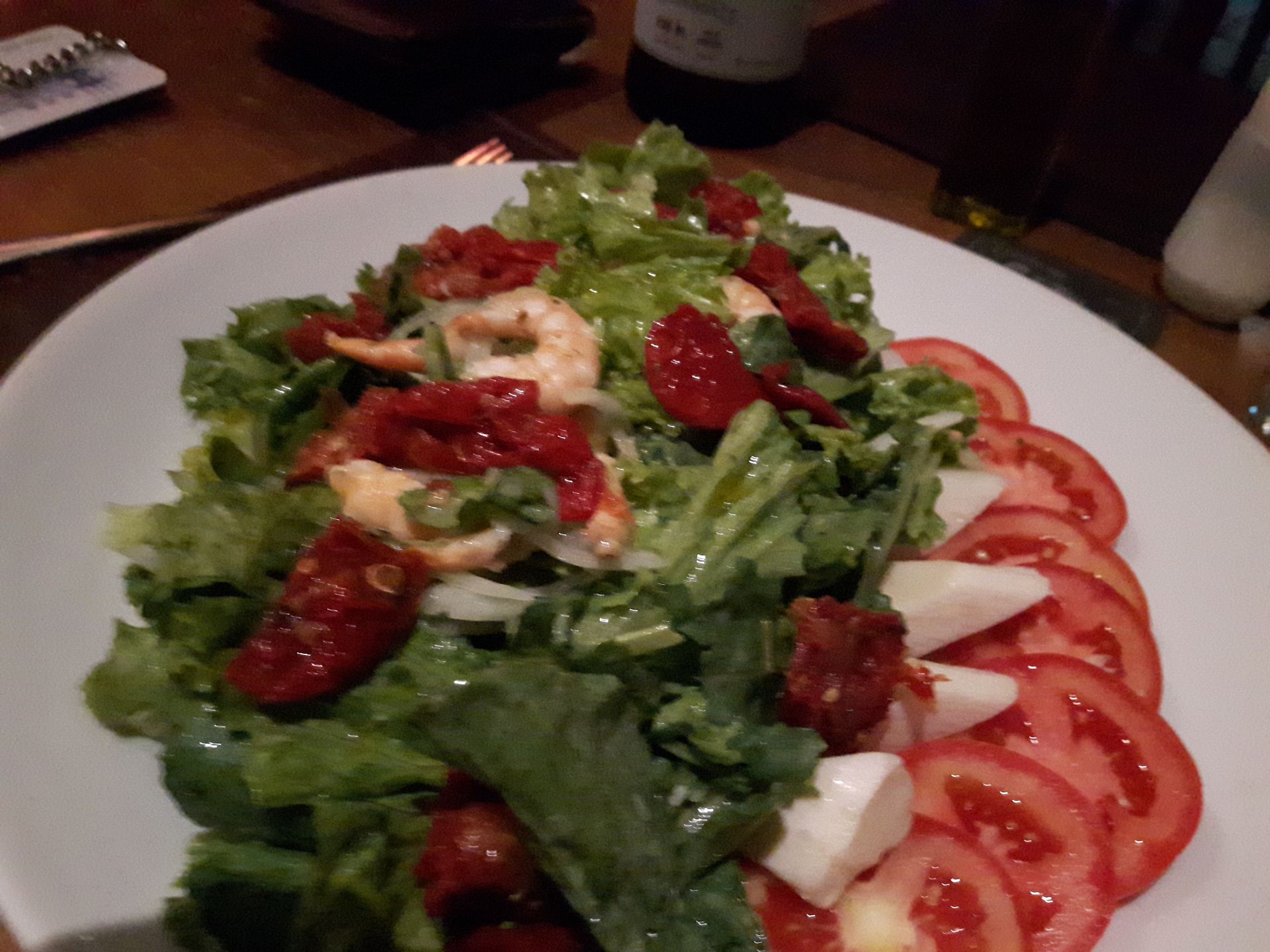
awesome! for comparatively little money!
Tanysgrifio i'r Cylchlythyr
Ateb
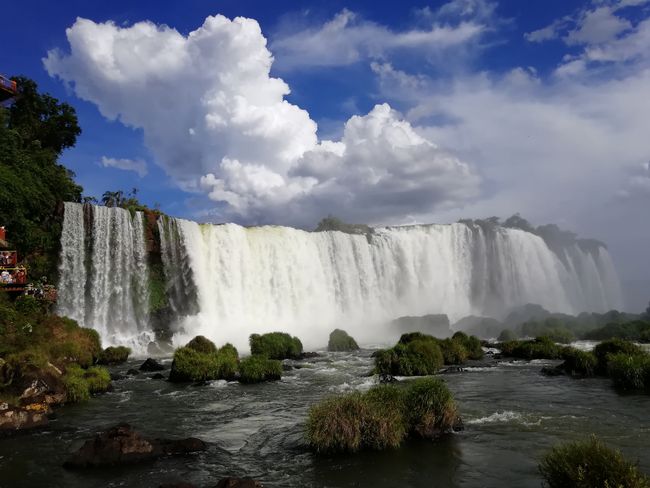
Adroddiadau teithio Brasil
